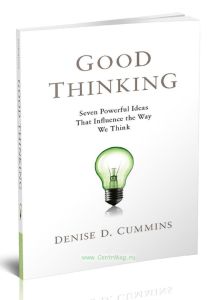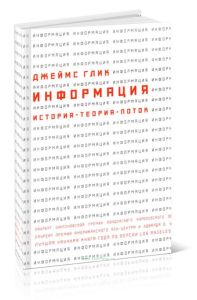- Артикул:00-01050831
- Автор: Denise D. Cummins
- ISBN: 978-0-521-14550-3
- Обложка: Мягкая обложка
- Издательство: Cambridge University Press (все книги издательства)
- Город: New York
- Страниц: 212
- Год: 2012
- Вес: 530 г
Good Thinking/Правильное мышление
Книга на английском языке.
The answers are rooted in the critical–and sometimes counterintuitive–concepts that experts use to make decisions. Their methods determine whether we are guilty or innocent, where we should invest our money, and whether a drug effectively treats a particular illness.
Good Thinking: Seven Powerful Ideas That Influence the Way We Think explores the ways experts across various fields solve the problems that directly impact our lives. After reading this book, you will know how the best and brightest thinkers decide, argue, and tell right from wrong. But you will also see how our own «flawed» thinking can be used for the better.
Contents
List of Figures page
List of Tables
Acknowledgments
ONE
Introduction
TWO
Game Theory: When You Are Not the Only One Choosing
The Basics of Game Theory
Game Theory and the Battle of the Sexes
Game Theory and Avoiding Mary’s Inappropriate Co-Worker
Game Theory and Deciding Whether or Not to Trust
Experimental Economics: What Do People Actually Do?
Differences in Power and Status Influence How Fairly We Treat Others
Neuroscience Makes It Clearer Why We Behave the Way We Do
The Evolution of Cooperation
THREE
Rational Choice: Choosing What Is Most Likely to Give You What You Want
How the «Big Boys» Think about Decision Making
How to Be More Bayesian
When We Are Not Bayesian
How the Question Is Framed Determines Whether You Get It Right or Wrong
Your Brain on Decision Making
Decision Making in the Real World: The Economic Meltdown of 2008
FOUR
Moral Decision Making: How We Tell Right from Wrong
Church and State Weigh in on Morality
What David Hume Had to Say
What Immanuel Kant Had to Say
What Jeremy Bentham and John Stuart Mill Had to Say
What Seems Right to Us: The Psychology of Moral Judgment
Yes, but What Is Morality for?
FIVE
The Game of Logic
A Journey into Logic Land
Just How Logical Are People, Really?
What to Do When the World (or Your Mind) Changes
SIX
What Causes What?
The Paradox of Causality
How the Experts Decide What Causes What
How Your Brain Decides What Causes What
What Is Necessary? What Is Sufficient?
How What You Believe Influences How You Decide
The Causal Paradox Revisited: What Infants Told Us
SEVEN
Hypothesis Testing: Truth and Evidence
Confirmation Bias: Tell Me I’m Right
A More Realistic Study of Confirmation Bias
When Your Brain Is Biased
Science: How We Got Here
Prove I’m Wrong, or Give Me the Most Bang for the Buck?
OK, Show Me I’m Wrong
Stopgaps and Backup Systems
EIGHT
Problem Solving: Turning What You Don’t Want into What You Want
When Problems Are Well-Defined
When Problems Are Not So Well-Defined
Finding the Way There
Artificial Intelligence: Machines That Think
How Experts Solve Problems
Insight and Genius
NINE
Analogical Reasoning : This Is Like That
Analogy as It Should Be Done
Analogy: How It Is Actually Done
Why Analogy Is the Core of Cognition
References
Index
Рекомендуем




